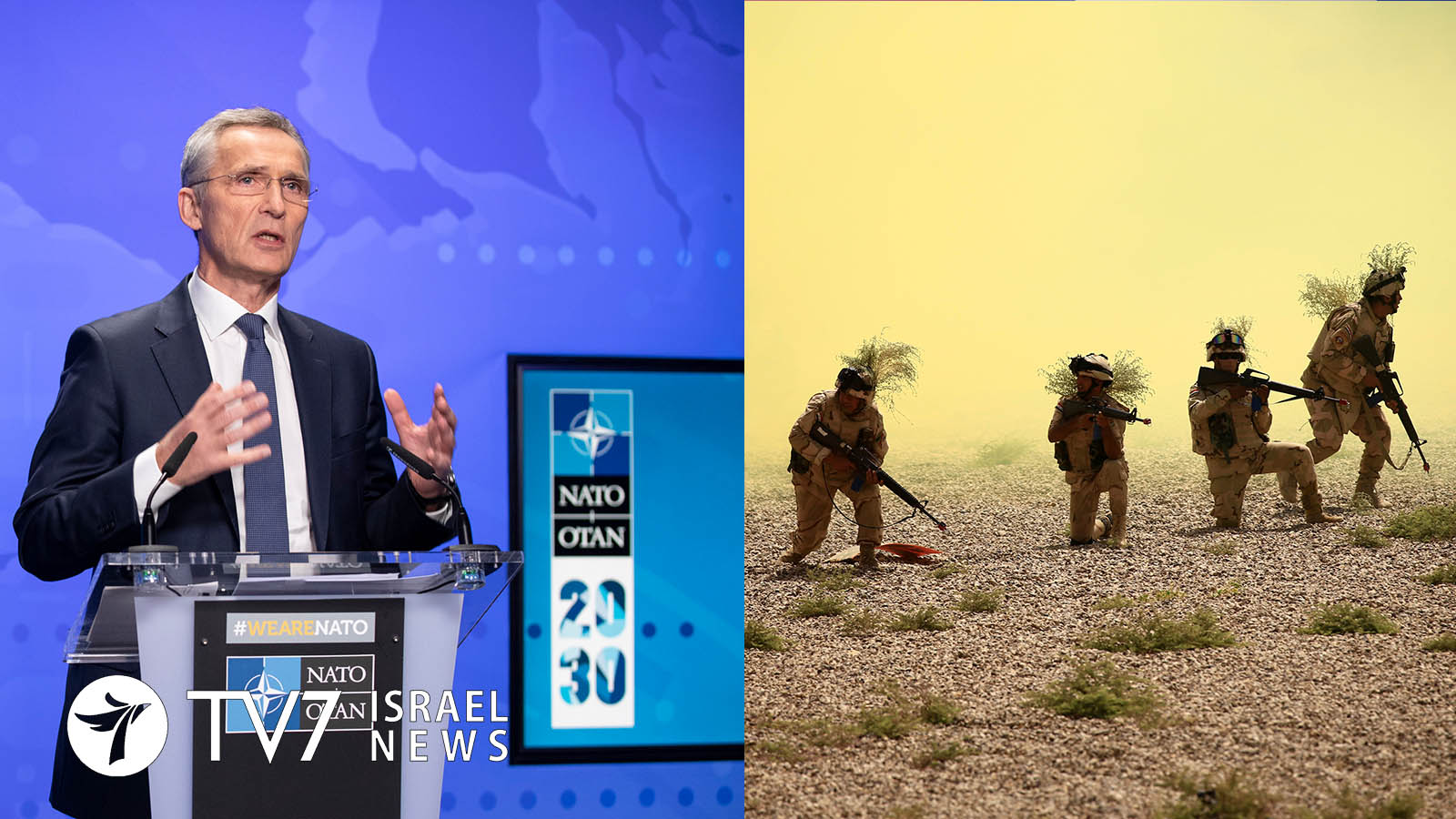The North Atlantic Treaty Organization (NATO) is today preparing to bolster its role in the Middle East.
Defense Ministers of member states are expected to approve plans to expand the of the Atlantic military alliance’ training mission in Iraq once the coronavirus pandemic has eased. The ministers are set to greenlight the plan via video conference due to COVID-19 restrictions.
According to senior officials and diplomats, the initiative includes increasing the mission from its current maximum of some 500 troops to between 4,000 – 5,000. There are still about 2,500 US troops in Iraq.
NATO Secretary-General Jens Stoltenberg addressed the matter on Monday, expressing hope that “The mission will expand gradually, in response to the situation” with more allied personnel working in more security institutions across Iraq.
There has been a non-combat NATO presence in Baghdad since October 2018. The mission currently only trains and advises members of the Iraqi security institutions and forces who are under the direct control of the Iraqi government – but an expanded role would likely see assumption of many training activities carried out by the U.S.-led coalition against Islamic State. Diplomats believe that Iraqis would be more accepting of a NATO mission led by a Danish commander with allied troops including Britain and Turkey than Americans.
There had been previous intent to enlarge the alliance, primarily due to demands by then-United States President Donald Trump for NATO to assume more responsibilities in the Middle East. Emergence of the coronavirus delayed any such action, as did concerns about regional stability after a US military drone killed top Iranian commander Qassem Soleimani in the Iraqi capital on 3 January 2020.
This time, however, the initiative likely to advance at the urging of Iraqi Prime Minister Mustafa al-Kadhimi, who diplomats describe as eager to have a greater NATO presence in the country at a time of rising insecurity. Kadhimi is a former intelligence chief and US ally who took office in May. The country is expected to hold new elections later this year in October.
Paramilitary groups aligned with Iran in Iraq and Yemen have launched attacks against the United States and its Arab allies in recent weeks.
Rocket fire at US-led forces in northern Iraq killed a civilian contractor on Monday and injured a US service member, in the deadliest such incident in almost a year. The Iraqi Shi’ite ‘Guardians of the Blood Brigade’ militant group that claimed responsibility for the attack is directly linked with Iran, according to Baghdad officials. Tehran has predictably denied any involvement in the attack.
Other recent attacks include rocket fire on the US Embassy in the Iraqi capital, and a drone strike on a Saudi airport.
Acting US Ambassador to the United Nations Richard Mills stressed during a Security Council meeting on Iraq on Tuesday that one of the highest barriers to creating a conducive environment for credible, peaceful and inclusive elections “is the presence of armed militias, violent extremists and spoilers.”
“A conducive environment means that we must address Iran-backed militias and Iran’s destabilizing activities in Iraq, as well as the remaining ISIS (Islamic State) elements,” Mills told the 15-member council, stressing that, “These groups undermine the public’s trust in the government, and in the elections…. They’re killing Iraqi citizens and depriving Iraq of much-needed economic relief and foreign investment. No one is immune.”
US President Joe Biden’s administration pledged to be a steady, reliable partner for Iraq, Mills said, adding that “Among its top priorities, the United States will seek to help Iraq assert its sovereignty in the face of enemies at home and abroad, by preventing an ISIS resurgence and working toward Iraq’s stability.”
Head of the UN Assistance Mission for Iraq Jeanine Hennis-Plasschaert underscored Washington’s message. “For credible elections to take place, it is imperative that parties and candidates operate in a free and safe environment,” she said, adding that the “recent incidents are highly troubling – to say the least. And with this in mind, I call on all parties, stakeholders and authorities to come together, to agree on a ‘code of conduct’ and to allow all Iraqi candidates to operate freely – irrespective of ethnicity, gender, language, religion, belief or background.”
After noting that “Iraqis marked the third anniversary of the territorial defeat of ISIL this past December,” Hennis-Plasschaert said the 21 January “heinous suicide attacks on a market in Baghdad, which killed at least thirty people and injured over one hundred, painfully demonstrated that violent extremism has not been vanquished.”
This “callous act of cowardice” serves as “a stark reminder that Iraq cannot rest on its laurels,” she underscored, emphasizing that “strengthening safety and security is as much about addressing the root causes of extremism, as it is about the immediate ability to respond to threats on the ground.”
